Experts Warn Homeowners Not to Cover AC Units This Winter – Here’s the Safe Way to Protect Your System from Harsh Weather
It could do more harm than good

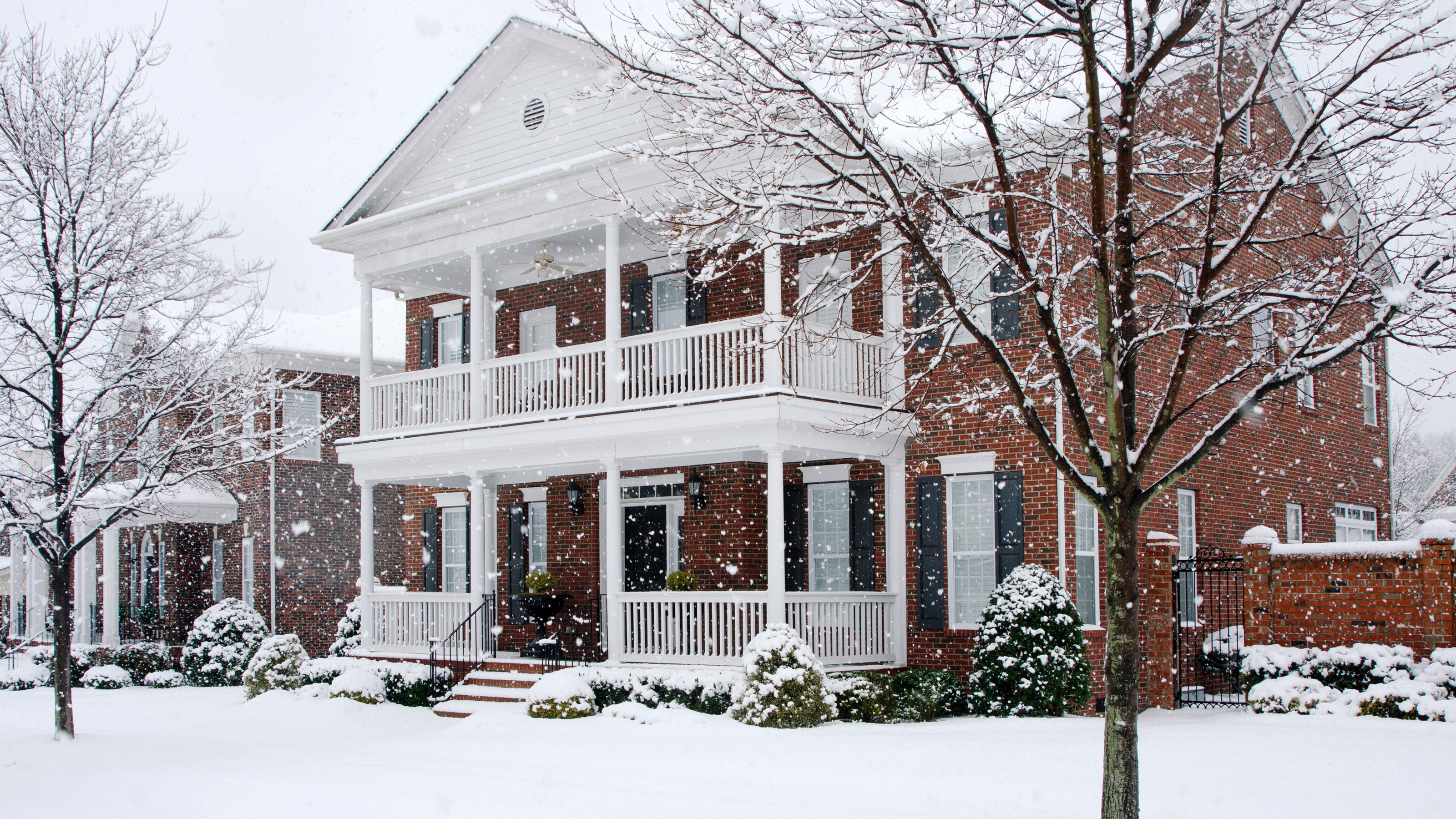
Design expertise in your inbox – from inspiring decorating ideas and beautiful celebrity homes to practical gardening advice and shopping round-ups.
You are now subscribed
Your newsletter sign-up was successful
Want to add more newsletters?

Twice a week
Homes&Gardens
The ultimate interior design resource from the world's leading experts - discover inspiring decorating ideas, color scheming know-how, garden inspiration and shopping expertise.

Once a week
In The Loop from Next In Design
Members of the Next in Design Circle will receive In the Loop, our weekly email filled with trade news, names to know and spotlight moments. Together we’re building a brighter design future.

Twice a week
Cucina
Whether you’re passionate about hosting exquisite dinners, experimenting with culinary trends, or perfecting your kitchen's design with timeless elegance and innovative functionality, this newsletter is here to inspire
As we switch to heating for the winter, it feels right to cover up the external AC unit to protect it from snow and rain. However, experts suggest this could be doing more harm than good.
From trapping moisture, inviting pests, and permitting mold, a cover could make your AC maintenance 10 times harder when spring rolls back around.
Luckily, there are some safer, less demanding tasks you can check off when winterizing a home to protect your AC without a costly cover. Here's what to pros recommend.
Why You Shouldn't Cover an AC Unit
Covering up your AC unit is a home maintenance mistake to never make in winter.
Josh Mitchell, HVAC technician and owner of Air Conditioner Lab, says, 'Unless your unit’s manual specifically says otherwise, I don’t recommend fully covering an outdoor AC unit in winter. The cabinet, coils, and internal components are designed to stay outside. They hold up fine in snow, rain, and freezing wind.
'What usually causes damage isn’t the weather itself. It’s what happens when moisture gets trapped under a full cover,' he explains. 'That’s when you start seeing rusted parts, corroded wiring, or animals nesting inside the unit. I’ve seen chewed control wires from mice and dried leaves packed into fan blades more times than I’d like to admit.'
If you are worried about damage from falling debris or want to save time digging leaves out of the fan in spring, you can find partial AC unit top covers at Walmart. These mesh covers keep the unit free from debris, without trapping moisture.
Design expertise in your inbox – from inspiring decorating ideas and beautiful celebrity homes to practical gardening advice and shopping round-ups.
Heat pumps are different, however, Josh continues. 'If you have one, don’t cover it at all. They run year-round and rely on open airflow even during snowstorms. Blocking that airflow messes with the defrost cycle and can cause it to ice up badly. That repair usually isn’t cheap, and you will end up having to call a pro.'
When to Cover an AC Unit
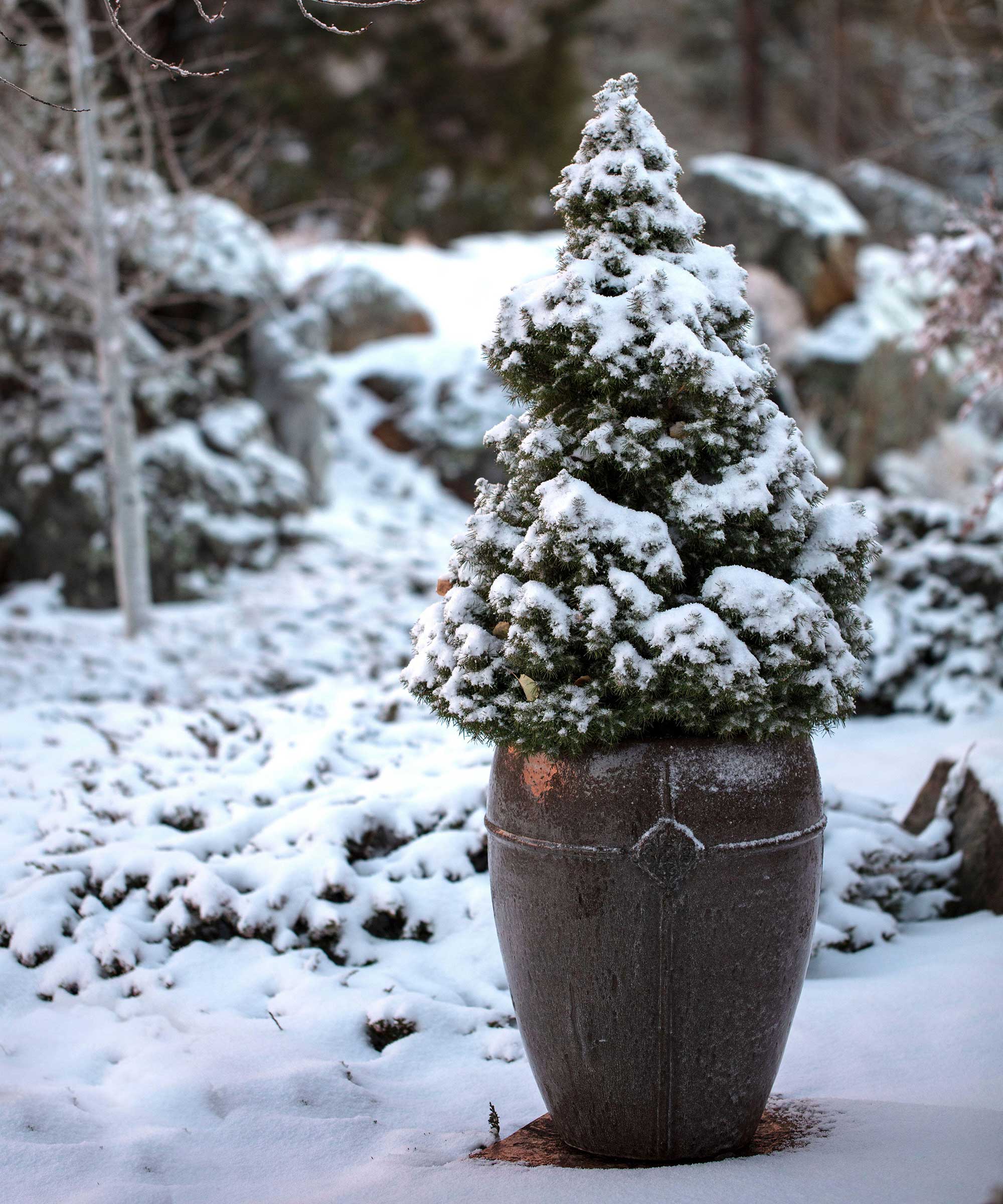
Covers can be handy in some circumstances to protect from debris.
There are some rare instances where a cover on top of your AC unit can protect from damage, Josh continues.
'If you live in an area with frequent ice and snow or with tree branches, it makes sense to cover the unit's top,' he shares. 'I tell people to use a square piece of plywood [available at Lowe's] slightly larger than the fan opening. Place something on top to weigh it down.
'You don’t need to wrap the sides,' he adds. 'In fact, wrapping the whole thing can limit airflow and speed up corrosion. Units need airflow, even when they’re off. That airflow helps keep moisture from collecting inside, and sealing everything off traps that moisture.'
How to Winterize an AC Unit Safely
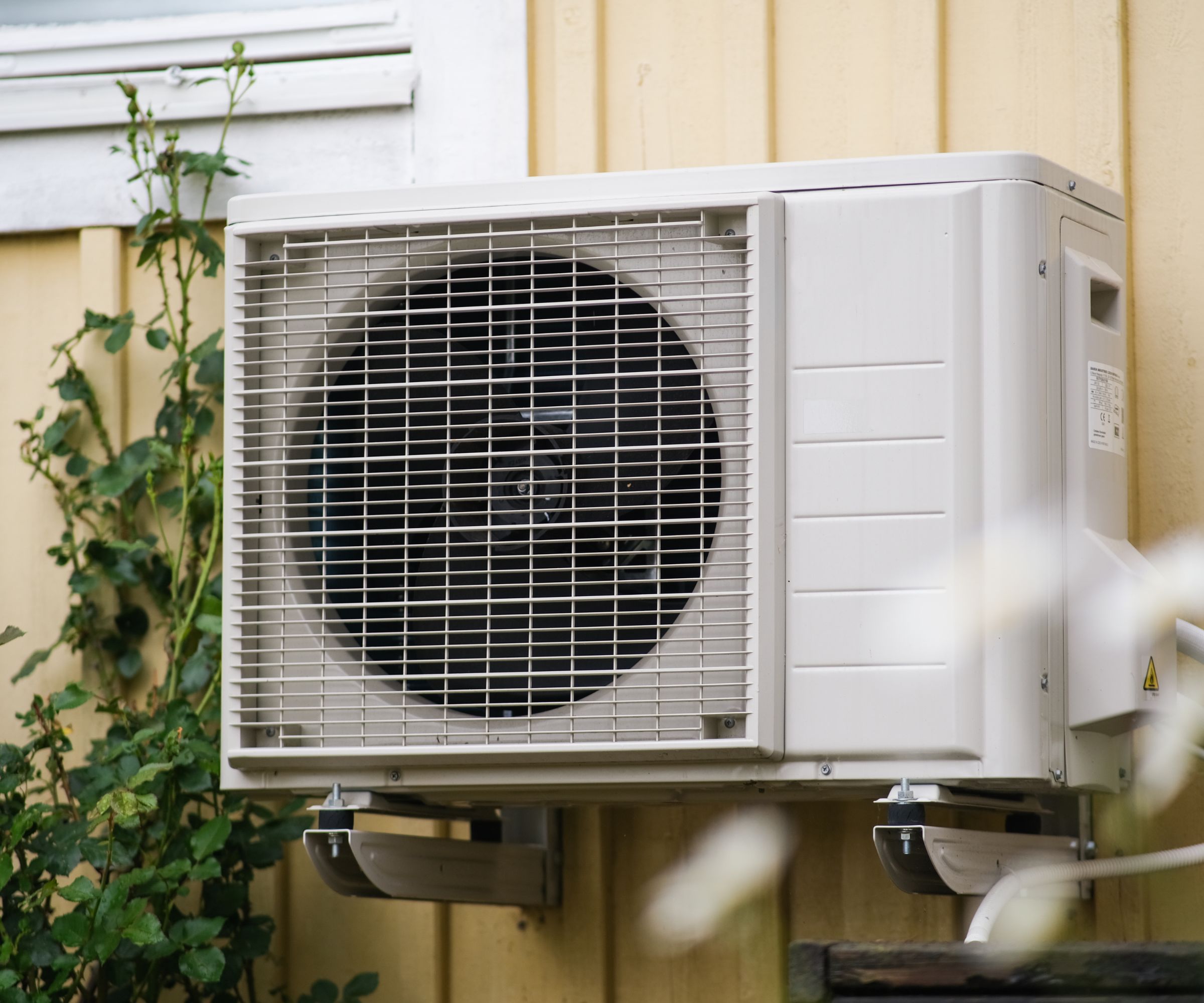
You can still winterize an AC unit without covering it to prolong it's lifespan.
Although you do not need to cover an AC unit, there are some winter and fall home maintenance tips you can use to protect your unit from wear in harsh weather.
To start, Josh suggests that those in very cold states, such as Illinois or Pennsylvania, shut off the AC's power at the outdoor disconnect. 'That stops the unit from kicking on during a warm spell. If it runs while there’s snow or ice inside, it can damage the fan motor or bend the blades. I’ve had calls in early spring where homeowners thought their unit was broken, but it had frozen up during a February warm-up.'
Furthermore, work through your winter gardening checklist and clear away debris. Josh recommends, 'Sweep away leaves, clear snow from the base after storms, and check for icicles above. A quick check every few weeks during winter is more useful than a full cover.
'For extra protection, I recommend a breathable top cover like the Jeacent AC Defender, available at Amazon. It only covers the top and still allows airflow. If you’ve got a metal or steep roof, a snow guard [also from Amazon] can help break up ice before it falls onto the unit.'
What to Shop
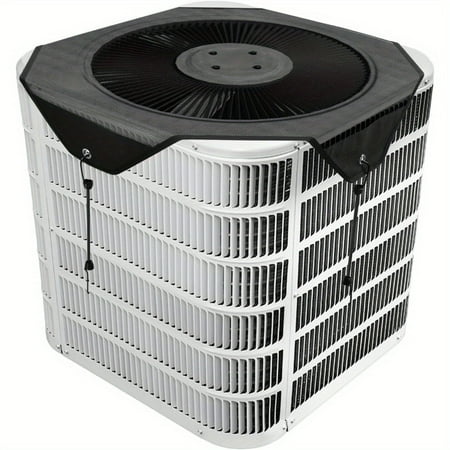
This mesh top cover for external AC units allows your fan to breath while keeping it free from falling debris such as leaves and branches.
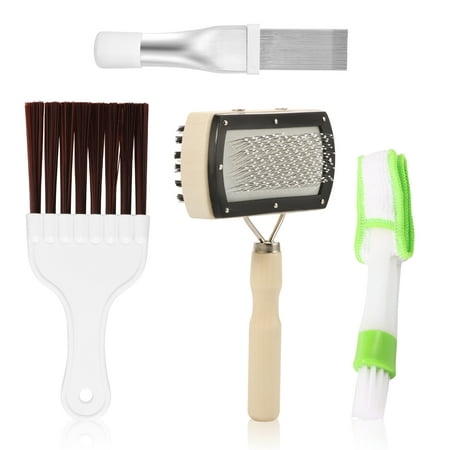
These brushes efficiently clean air conditioners, reaching hard-to-access corners. The coil brush tackles built-in condensers, while the plastic stirring brush cleans condenser fins/coils effectively without causing damage.
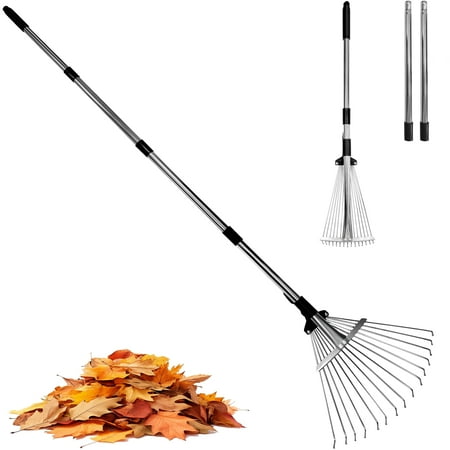
Keep leaves away from your AC unit, home perimeter and walkways with this adjustable garden rake. The handle collapses for easy storage, too.
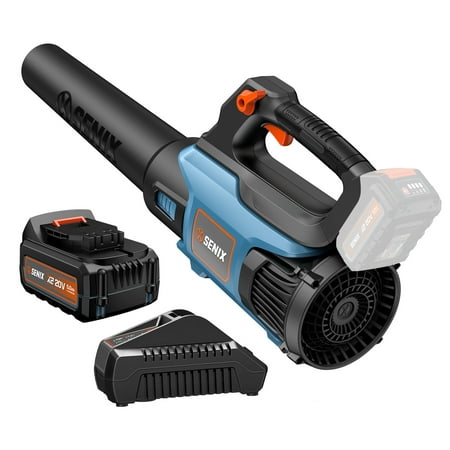
This handy cordless leaf blower is ideal for removing debris from AC units quickly. It is rechargeable, too, for convenience.
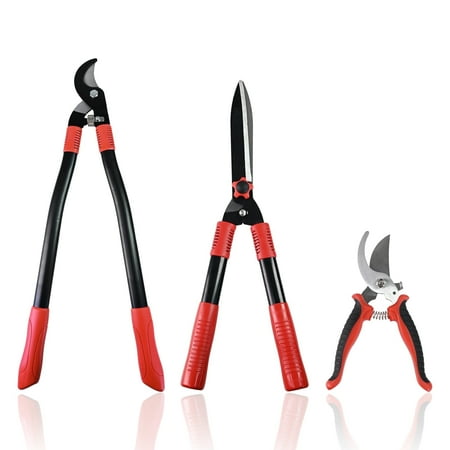
Trim back overhanging branches above AC units to limit the risk of damage should they break and fall in winter storms.
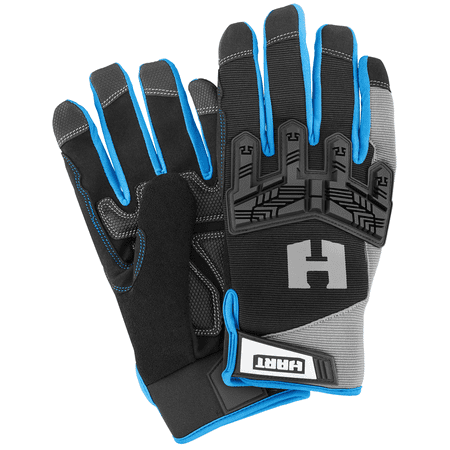
When working outside, always wear thick work gloves to prevent splinters, cuts, and nicks while staying warm in winter weather.
Meet the Expert

Air Conditioner Lab was founded by HVAC pro and tech enthusiast Josh in 2014, as a way for him to document his findings on home air conditioners and cooling methods.
If you live somewhere that experiences varying weather patterns, consider investing in some home upgrades to prepare a house for extreme weather to protect your family and your property in an emergency.

Chiana is Homes & Gardens’ kitchen appliances editor. With a lifelong passion for cooking and baking, she grew up experimenting in the kitchen every weekend with her baking-extraordinaire Mom, and has developed a great understanding of how tools and appliances can make or break your ideal relaxing kitchen routine.